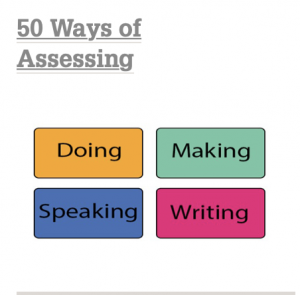In this blog the spotlight is on the 50 ways of assessing section of the toolkit.
Assessment is an important aspect of teaching and learning. It provides a measure of student performance (assessment of learning), but perhaps more importantly is also an import part of the learning process (assessment for learning). However, choosing appropriate assessments is a complex process.
Key considerations in designing an assessment include how formative and summative assessment will be incorporated in a unit, how they enable students to demonstrate achivement of unit learning outcomes, and how they contribute to wider programme learning outcomes. It is also important that programmes incorporate a range of assessments so all students have an opportunity to demonstrate their achievement and have an opportunity to engage in discipline- and profession-relevant tasks. The above can be supported and enhanced through the use of technology enhanced learning (TEL) and assessment tools.
There are many forms of assessment which can be included in a programme to help achieve these principles. To help ensure a balance of assessment on a programme, BU categorises assessment into four types: writing, speaking, doing and making. These are not mutually exclusive categories and a single assessment, such as a Mahara eportfolio or a dissertation, may encompass activities that align with all four types.

In this section of the toolkit you can find 50 assessment types; a table matching Learning Outcomes to assessment types; and an external publication which contains student perspectives on assessment types.
Do get in touch if there is anything you would like to contribute to the Toolkit,
Anne Quinney, Principal Lecturer, FLIE








